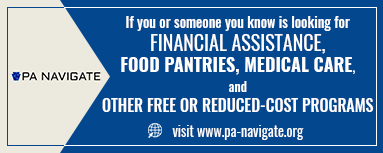Every expert will tell you it is critical to stop smoking, but for many people, it is extremely difficult to do. If you live in Bucks County, PA, our smoking cessation program is here to help you quit completely or start to taper back your smoking habit.
Nearly 70% of smokers say they want to quit. In 2020, about 56% of smokers had tried to quit in the previous year, but only about 8.5% of them succeeded. The good news is that this is an increase from 2018, when only 7.5% succeeded, suggesting that quit-smoking methods are improving. More good news: the successful quit rate for anyone who has ever smoked is 66.5% (as of 2021). This means that, even if it takes a few attempts, eventually most smokers can finally be free of tobacco.
The less you have smoked, the easier it is to quit, and the sooner you quit, the better the health benefits, but even decreasing the number of cigarettes you smoke can have a profound positive effect on your health.
Health benefits of quitting
Smoking can cause or increase your risk of many health conditions, including:
- Many types of cancer, not just lung cancer
- Lung disease, such as COPD, tuberculosis, asthma, and pulmonary fibrosis
- Heart and vascular disease, which can lead to a heart attack and stroke
- Eye diseases like cataracts, macular degeneration, and vision loss
- Infertility, erectile dysfunction, premature births, and various health issues to the unborn child
- Type 2 diabetes
- Autoimmune disease, including rheumatoid arthritis
- Reduced immunity
- Difficulty healing wounds
- Premature aging
Quitting smoking can improve these conditions if you have them or reduce your risk of developing them, and can add years to your life. In fact, according to the American Cancer Society, within minutes of quitting, you begin to see health benefits, which continue to accumulate over time:
- Within 20 minutes after quitting, your heart rate and blood pressure drop
- After a few days, carbon monoxide levels in your blood drop to normal
- Within two weeks to three months after quitting, your circulation improves and your lung function increases
- Within one to 12 months, depending on how much you smoked, coughing and shortness of breath decrease because the tiny cilia in your lungs that have the job of moving mucus out begin to regain their normal function and do their job of clearing your lungs
- Within one to two years of quitting, your risk of heart attack drops dramatically
- After five to ten years, your risk of mouth, throat, and larynx cancer is cut in half
- After 10-15 years, your risk of lung cancer is half that of someone who never quit, the risk of other cancers decreases, and your risk of coronary disease is close to that of a non-smoker
Quitting also slows premature wrinkling and reduces gum disease, which can cause tooth loss. Other benefits include better food taste, improved sense of smell, no longer yellow teeth and nails, and better-smelling clothes and breath.
Get support
Studies indicate that of those people who eventually quit smoking, many of them found that support groups helped them succeed. BCHIP’s Quit Smoking Program has helped hundreds of people successfully quit smoking and stay smoke-free.
We help you set realistic goals so that you can experience success, which fuels more effort. For instance, many of our program participants feel unprepared to quit smoking entirely, so they commit to a reduction. Cold turkey works for many people, but may be completely unrealistic for you.
Nicotine replacement therapy (NRT) has also helped many people who may otherwise not be able to quit. We can supply NRT in the form of gum or patches to those who qualify.
In BCHIP’s Quit Smoking Program, you can discuss your particular situation with one of our counselors and develop goals to help you succeed. Other program participants supply moral support and share their own experiences to help encourage you during your effort to “break the habit.”
We offer classes both in person and online. Click HERE to see current times and learn more about our program, or call (267) 291-7882 for more details.





